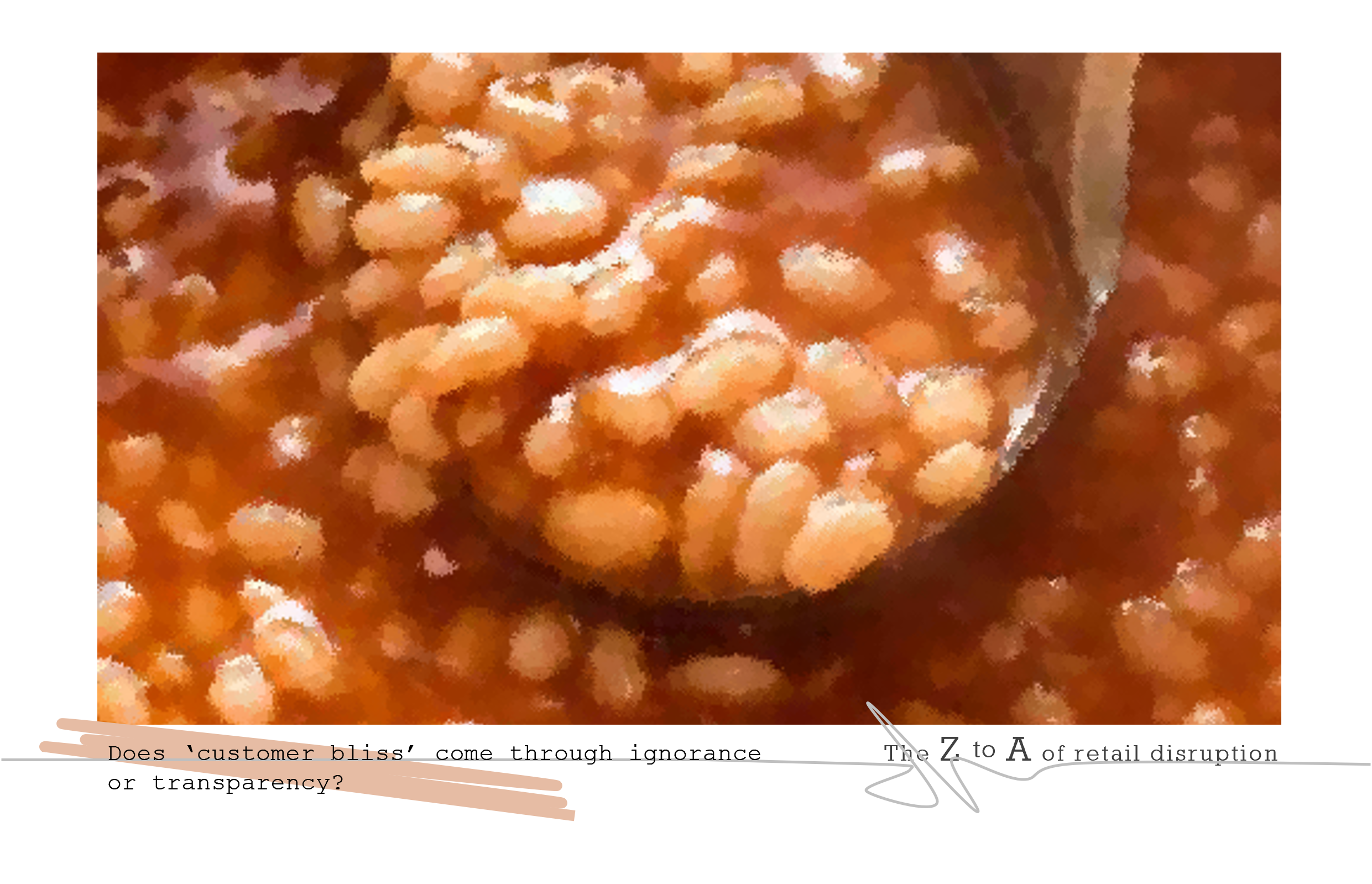Does ‘customer bliss’ come through ignorance or transparency?
The row between Tesco & Heinz has been in the news recently. It is the same row Tesco is also having with other suppliers over the hike in supplier pricing and the knock-on effect to the retail price.
Tesco has positioned itself as the customer champion, refusing for a while to sell famous Heinz products. Its claim is that whilst manufacturing costs are clearly rising dramatically the increase in price asked for by some brands is not justified. Indeed, profiteering from the situation is an accusation being more subtly communicated.
Whilst the differences of opinion seem to have been reconciled, and the baked beans and tomato sauce assortments returned to full glory, the issue of transparency is for me the larger debate here.
It is interesting that Retail Week who reported heavily on the story, as you would expect, are taking the stance that these negotiations should be kept in-house, and it serves no one any good when supplier and retailer laundry is washed in public.
I would have to take the opposite view. The more transparency we see in the workings and negotiations of large businesses the better.
It would seem on the one hand, that Tesco is justified as heralding itself as the customers’ champion. It would rather have empty shelves, free from best sellers than have large brands, driven by profit mentalities and shareholder dividends, exploiting a difficult situation for their own financial benefit. On the other hand, it is a very smart piece of PR from Tesco, whilst forcing customers to select Tesco range baked beans and tomato sauce is not going to do its profit margins any harm at all.
Ultimately it is for us to decide as customers. And this is how it should be.
This public wrangling at least brings to our attention some transparency on who supplies our goods and who ultimately sets the prices we pay. I wonder how many customers realised that traditional British brands such as Heinz and Cadburys for example are owned by enormous international, in this case US, businesses. And whilst production and jobs may be in the UK, the objective of such mega-businesses is to make as much profit for themselves and their shareholders across the world.
Of course it’s complicated, but at least transparency can lead to more informed buying choices. And it would be strange, when we have been clamouring for years for more transparency in the fashion industry, more knowledge on the conditions, ethics, and sustainability of how our clothes are made, that we do not have the same curiosity to see behind the supply chains of the food we eat.
Bring on transparency. ‘No reason to hide is what leads to no hiding.’
And we all have the choice on whether to take an interest in such things or not.
Does ‘consumer bliss’ come through ignorance or transparency? It is an individual matter.
But I personally would like as much transparency as possible, to decide whether I should invest any time and angst in considering such matters, or not.
